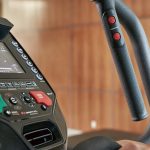By Thomas J. Ryan
<span style="color: #a6a6a6;">In court papers, Ken D’Arcy, Remington Outdoors’ CEO, said the firearm’s giant’s second bankruptcy in two years was partly due to elevated inventory levels and a wide range of brands that extended the company beyond its “core focus” coming out of its first bankruptcy. He added, “Most importantly, the unfavorable business trends continued after exit from the prior cases.”
The filing comes despite the fact that firearm dealers across the country have seen a spike in sales since March that many attribute to the nationwide protests over racial divide and calls to defund U.S. police departments.
But Remington has faced a soft market for firearms overall in recent years since the election of President Trump to the White House which has lessened concerns over gun control legislation. The potential election of Hilary Clinton had left the firearms industry with significantly elevated inventory levels.
The company also faced litigation tied to the 2012 Sandy Hook Elementary School shooting, in which the killer used a Bushmaster rifle manufactured by Remington. Remington has tried to dismiss a lawsuit filed by the families of the victims related to the marketing of the company’s guns although little mention of the litigation was noted in the filing. The high-profile case is scheduled to go to trial next year. U.S. retailers, including Walmart and Dick’s Sporting Goods, have nonetheless placed restrictions on gun sales due to the rise in mass shootings in recent years.
 D’Arcy, shown right, wrote in court papers filed in bankruptcy court in Decatur, AL that in order to alleviate covenant concerns and provide new capital, Remington in late 2018 and early 2019 commenced a “robust process” to refinance its Exit ABL Facility. Ducera Partners were hired in March 2019 as financial advisors, and over 60 potential lenders were contacted to support the refinancing. Over a period of three weeks, three non-binding indications of interest were received, and Remington entered into a new term loan agreement with Whitebox Advisors in April 2019 to support the refinancing.
D’Arcy, shown right, wrote in court papers filed in bankruptcy court in Decatur, AL that in order to alleviate covenant concerns and provide new capital, Remington in late 2018 and early 2019 commenced a “robust process” to refinance its Exit ABL Facility. Ducera Partners were hired in March 2019 as financial advisors, and over 60 potential lenders were contacted to support the refinancing. Over a period of three weeks, three non-binding indications of interest were received, and Remington entered into a new term loan agreement with Whitebox Advisors in April 2019 to support the refinancing.
With some breathing room, Remington in 2019 appointed a new CEO, CFO and COO. An exploration of strategic priorities, various cost-cutting measures and financing alternatives were undertaken in an effort to reduce excess inventory and increased profitability via continued improvements in operational efficiencies, growth in international and dealer sales channels and growth in defense and law enforcement channels.
The initiatives resulted in significantly improved efficiencies and savings, but Remington’s financial performance continued to deteriorate owing in large part to its inability to purchase raw materials at the required level to grow revenue. In 2019, sales were $437.5 million in total and adjusted EBITDA showed a loss of $74.7 million. In comparison, in 2015 and 2016 Remington had sales of $808.9 million and $865.1 million and $64 million and $119.8 million in adjusted EBITDA, respectively.
The company’s brands include Remington, Marlin, Bushmaster, Barnes Bullets, Advanced Armament Corp., and DPMS.
D’Arcy said Remington also continued to face liquidity pressure and was increasingly challenged to meet the collateral base floor requirements imposed under its priority term loan facility, limiting credit availability and triggering an obligation to post cash collateral in the amount of any difference between Remington’s borrowing base and its collateral base floor.
<span style="color: #a6a6a6;">In February 2020, Remington negotiated an amendment to its priority term loan facility that reduced the collateral base floor by $7.5 million and deferred a $5.0 million amortization payment for a month and a half, but the amendment “did not provide a permanent liquidity solution,” according to D’Arcy.
To preserve liquidity, Remington deferred payment of the firearms and ammunition excise tax under 26 U.S.C. Section 4181 in compliance with the CARES Act.
D’Arcy further noted that while COVID-19 “recently sparked increased demand” for firearm products, Remington has been unable to take advantage of the situation due to the need to suspend operations temporarily to respond to the pandemic and insufficient liquidity to fund raw material purchases needed to scale up production. Said D’Arcy, “As a result, the debtors’ liquidity remains challenged.”
On December 2, 2019, Ducera was again engaged to help Remington explore strategic alternatives including a recapitalization, potential equity raise and sale. Ducera contacted over 200 potential new investors. Of these, approximately 40 entered into confidentiality agreements. Ultimately, approximately five potential investors submitted non-binding indications of intent including one indicating interest in purchasing Remington as a going concern.
Negotiations over terms continued for most of February and March although some parties were forced to halt their participation in the process due to COVID-19. The potential bidder of the whole business emerged as the lead bid, but Remington made another solicitation for additional bids in May and June in case the initial bid fell through.
A deal in principle was reached with the initial bidder on the final purchase agreement on June 18 to be executed through a bankruptcy filing, although the bid “became the subject of public reports, and the final approval by the potential bidder’s governing bodies expected in mid-July 2020 was not obtained within the timeframe necessary to move forward with the transaction.” The Wall Street Journal had reported that Remington was in talks to sell itself out of bankruptcy to the Navajo Nation.
Remington received asset purchase agreement mark-ups from four other bidders in addition to the initial bidder but was unable to finalize terms of these sales “by the time that their liquidity position necessitated this filing,” wrote D’Arcy.
The company owes various lenders more than $250 million, including a $12.5 million debt to Remington’s home town of Huntsville, AL, which put up a loan to help upgrade a manufacturing plant in the city.
The Chapter 11 filing allows the company to keep operating while it devises plans to turn around the business and pay its creditors.
Advisers to Remington include lawyers at O’Melveny & Myers and Akin Gump Strauss Hauer & Feld, restructuring consultants at M-III Partner, and bankers at Ducera Partners, according to the petition.
The case is Remington Outdoor Company Inc., 20-81688-11, U.S. Bankruptcy Court for the Northern District of Alabama.
Photos courtesy Remington/Ken D’Arcy
















